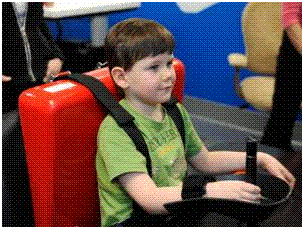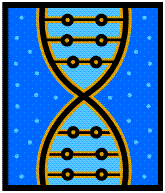
2009 CALENDAR OF WORKSHOPS
THESE WORKSHOPS ARE FREE AND OPEN TO THE PUBLIC,
LET US KNOW IF YOU NEED ACCOMMODATIONS WHEN REGISTERING.
TO SCHEDULE A WORKSHOP IN YOUR AREA
PLEASE CALL: 1-800-759-4776
* Are workshops for Foster Parents and DSS Staff
5/28/2009
9:00 am - 11:00 am
Is Your Child a Target of Bullying? Workshop
Beaufort Air Station
Building 807
Beaufort, SC
Gayle Munn, PRO-Parents of SC
Region 1, Education Coordinator
For More Information or To Register Call:
1-800-759-4776 or (803) 772-5688
5/30/2009
9:00 am - 3:00 pm
*Linking Families with Special Education Workshop
Hope Center
901 North Main Street
Sumter, SC
Kim Preston, PRO-Parents of SC
Foster Parent Project - Education Coordinator
For More Information or To Register Call:
1-866-863-1512
6/02/2009
10:00 am - 12:00 pm
Transitioning Into Special Education Workshop
Georgetown County DDSN
95 Academy Avenue
Georgetown, SC
Gayle Munn, PRO-Parents of SC
Region 1, Education Coordinator
For More Information or To Register Call:
1-800-759-4776 or (803) 772-5688
6/06/2009
10:00 am - 12:00 pm
Transitioning Into Special Education Workshop
Sponsored by: Fairfield DDSN
Fairfield Memorial Hospital
102 Highway 321 Bypass North
Winnsboro, SC
Susan Bruce, PRO-Parents of SC
Region 3, Education Coordinator
For More Information or To Register Call:
1-800-759-4776 or (803) 772-5688
6/09/2009
5:00 pm - 7:00 pm
*Is Your Child a Target of Bullying? Workshop
Hope Center
901 North Main Street
Sumter, SC
Kim Preston, PRO-Parents of SC
Foster Parent Project - Education Coordinator
For More Information or To Register Call:
1-866-863-1512
6/11/2009
10:00 am - 2:00 pm
Transitioning Into Special Education Workshop
Sponsored by: Richland / Lexington DDSN
420 Rivermont Drive
Columbia, SC 29210
Tanya M. Inabinet, PRO-Parents of SC
Region 2, Education Coordinator
For More Information or To Register Call:
1-800-759-4776 or (803) 772-5688
6/13/2009
10:00 am - 12:00 pm
*Is Your Child a Target of Bullying? Workshop
New Berkeley Restaurant
Highway 52
Moncks Corner, SC
Kim Preston, PRO-Parents of SC
Foster Parent Project - Education Coordinator
For More Information or To Register Call:
1-866-863-1512
6/17/2009
6:00 pm - 8:00 pm
Transitioning Into Special Education Workshop
Sponsored by: York DDSN & Pilgrim’s Inn
Pilgrim’s Inn
236 West Main Street
Rock Hill, SC 29731
Susan Bruce, PRO-Parents of SC
Region 3, Education Coordinator
For More Information or To Register Call:
1-800-759-4776 or (803) 772-5688
6/18/2009
6:30 pm - 8:30 pm
*ADD / ADHD Workshop
Anderson County DSS
224 McGee Road
Anderson, SC
Kim Preston, PRO-Parents of SC
Foster Parent Project - Education Coordinator
For More Information or To Register Call:
1-866-863-1512
6/19/2009
10:00 am - 12:00 pm
Transitioning Into Special Education Workshop
Dorchester County DDSN
2717 West 5th North Street
Summerville, SC
Gayle Munn, PRO-Parents of SC
Region 1, Education Coordinator
For More Information or To Register Call:
1-800-759-4776 or (803) 772-5688
6/20/2009
9:00 am - 1:00 pm
*ADD / ADHD Workshop &
ADD Question and Answer Session
Union DSS Office
200 South Mountain Street
Union, SC
Heather Watson-Kelley, PRO-Parents of SC
Foster Parent Project - Coordinator
For More Information or To Register Call:
1-800-759-4776 or (803) 772-5688
6/27/2009
9:00 am - 3:00 pm
*Is Your Child a Target of Bullying?, Communication, &
Positive Behavioral Interventions (PBI) Workshops
Marion County DSS Office
137 Airport Court
Mullins, SC
Kim Preston, PRO-Parents of SC
South Carolina Special Kids Project
For More Information or To Register Call:
1-866-863-1512
To view the PRO-Parents website, please click on link above.












